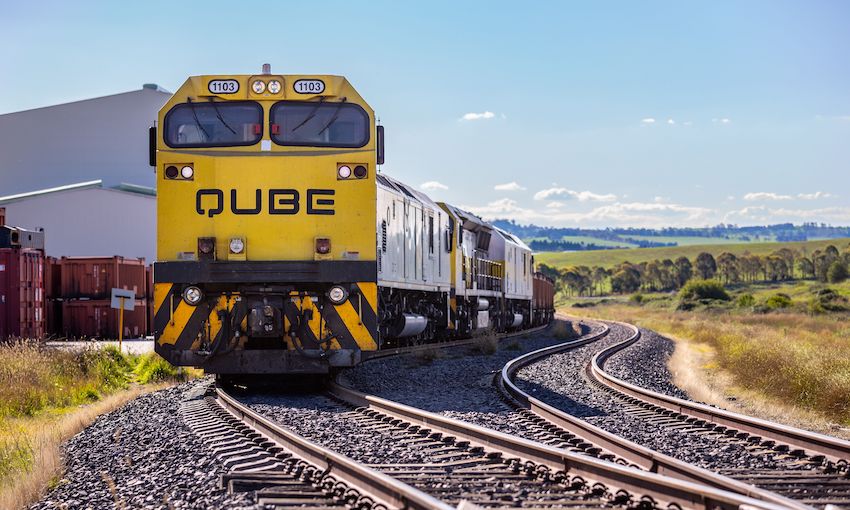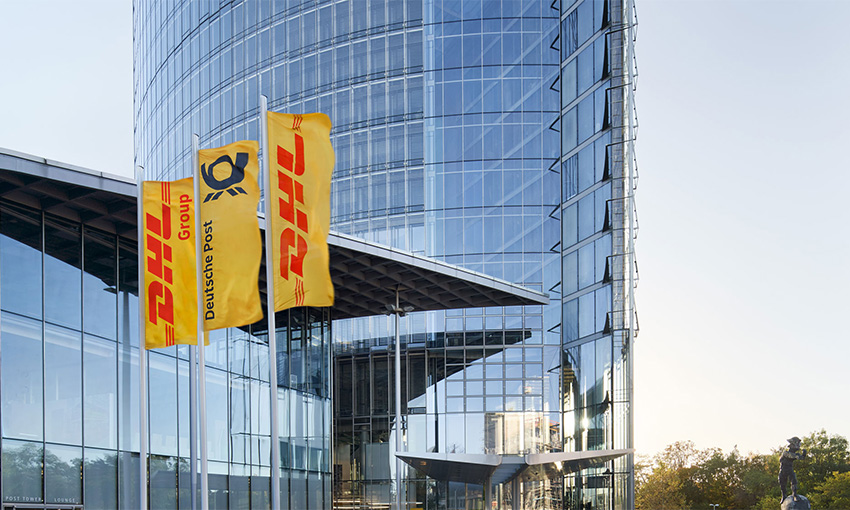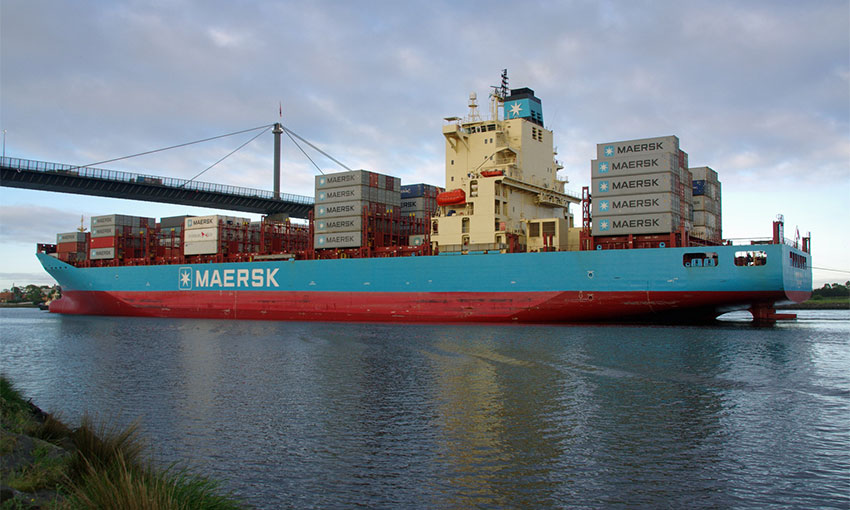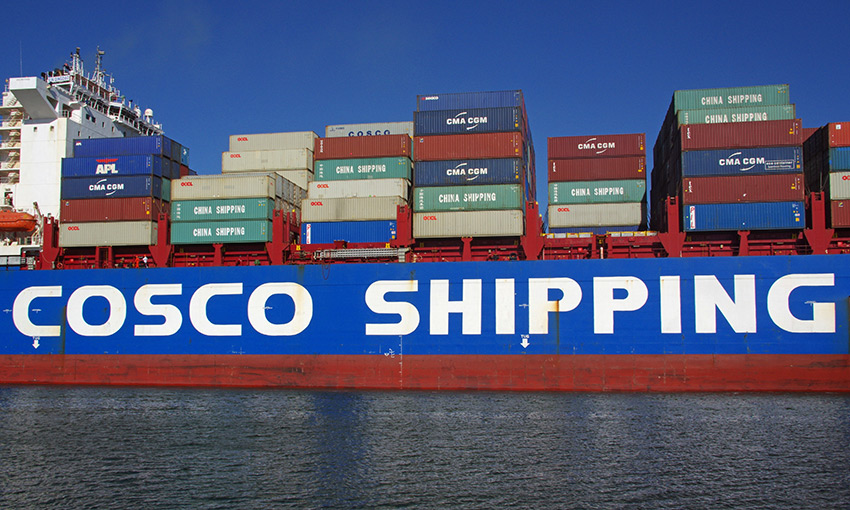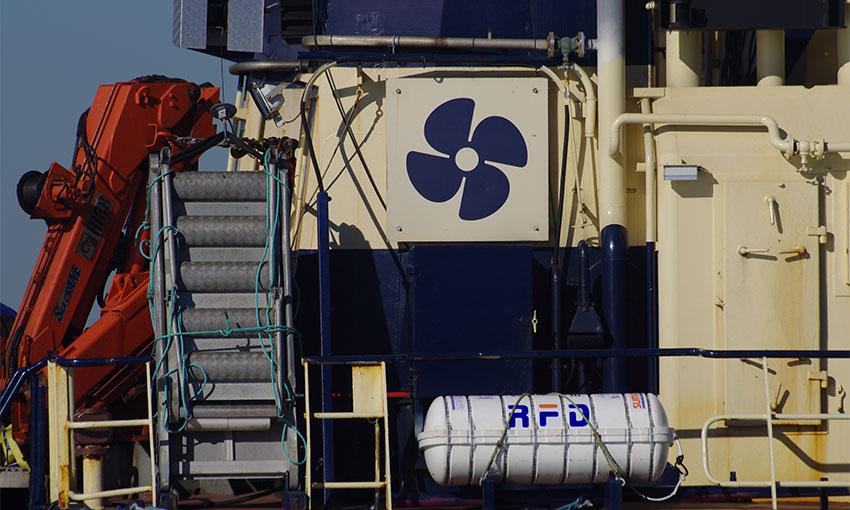QUBE has reported an increase in earnings and revenue for the 2023 financial year, driven largely by high volumes in its logistics business.
The company reported a full-year revenue of $2.99 billion, up 16% on that of FY22. In that same period, its underlying earnings increased by 27% to $260.3 million.
Qube’s Logistics and Infrastructure business unit saw high volumes across the container, automotive and agriculture activities; the company highlighted these volumes as significant contributors to the year’s financial performance.
The Logistics and Infrastructure unit saw underlying revenue increase by 18.9% to $1.34 billion, and underling EBITA increase by 54.2% to $224.5 million.
“In FY23 we had solid activities across all levels: road and rail haulage, warehousing, container parks, container repairs, freight forwarding and customs and quarantine services, which all delivered good earnings,” Qube managing director Paul Digney said.
“We saw high container volumes across most of our logistics infrastructure – significant infrastructure that we have built over many years. And we have benefitted from the prior year’s rate rebalancing outcomes,” he said.
“These two factors delivered pleasing revenue and earnings and margins in the logistics and infrastructure space, although there was some softening in the second half, which mainly impacted Patrick.”
On the wharves
An ASX announcement from Qube noted imported container volumes weakened in the second half of FY23, which impacted Patrick’s volumes and earnings in the period.
“Qube ports … benefited from higher vehicle volumes, which supported stevedoring and processing, storage and delivery activities,” Mr Digney said.
“However, congestion at the on-wharf facilities at AAT and Mirrat during the period resulted in some operating inefficiencies for Qube Ports.”
The Ports and Bulk business unit delivered a “weaker than expected” result; underlying revenue increased by 14.3% to $1.65 billion, but underlying EBITA decreased by 2.8% to $133.3 million.
Looking ahead, Mr Digney said Qube currently expects all markets to perform roughly in line with, or ahead of, FY23 performance.
“The only potential exception could be the container market, [in] which we expect some weakness given the expectation of an economic slowdown, which could impact Qube and Patrick,” he said.
“But having said that, July was the highest lift volume we’ve ever handled at Patrick.
“While it’s too early to say if that was a trend, or whether the market had improved, or just Patrick’s share, we’re certainly pleasantly surprised by the start to FY24.”
New Zealand expansion
Mr Digney said there are a number of opportunities for Qube’s container logistics business to gain market share in FY24, including the 50% acquisition of New Zealand shipping company Pinnacle Corporation earlier this year.
Qube also acquired 100% of specialist bulk logistics company Kalari in Australia at around the same time.
“This is a low-risk entry into the New Zealand containerised logistics market, partnering with an experienced operator in an industry we have vast experience in,” Qube chief financial officer Mark Wratten said.
“[Our] intention is to leverage our combined customer relationships and operational expertise to grow this business.
“We do expect to move to 100% ownership later in the first half of this year, at which time it will become part of the logistics and infrastructure business unit.”
Challenges and outlook
Mr Digney highlighted three main challenged that impacted Qube in FY23: inflation, labour and skills shortages and the economic downturn.
“Skilled labour shortages were mainly limited to regional areas such as Western Australia, Queensland and South Australia, impacting the bulk, resources and the domestic forestry businesses,” he said.
“However, we made progress on these challenges through the year through our recruitment and retention initiatives.”
Mr Digney said the challenge of economic downturn would have a limited impact on Qube’s total financial performance. He used the container market as an example.
“This is definitely where Qube’s earnings could be seen to potentially expose in FY24 from a major economic downturn,” he said.
“However, we’re not overly concerned because most goods still need to come through the ports, so it’s mainly consumer discretionary items that are impacted in the slowdown.
“And from a container perspective, the impact is also reduced to the extent that consumers will consume, but just purchase lower value products rather than no products. Our business is driven by volume of goods and not by their value.”
Qube said overall trading in the FY24 period to date has been ahead of its expectations, despite ongoing economic uncertainty.

